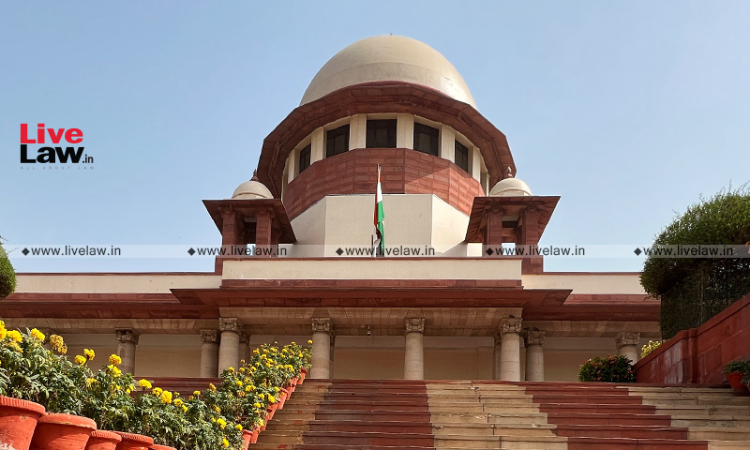- Home
- /
- Top Stories
- /
- Prosecutor Working On Contractual...
Prosecutor Working On Contractual Basis Cannot Claim Regularisation : Supreme Court
Amisha Shrivastava
4 July 2025 2:30 PM IST
The Supreme Court recently rejected a plea by a Public Prosecutor, appointed on a contractual basis, seeking regularisation.A bench of Justice Sandeep Mehta and Justice Joymalya Bagchi held that the Calcutta High Court had not committed any error in rejecting the petitioner's writ application seeking directions for regularisation. The Court noted that the petitioner had himself been...
The Supreme Court recently rejected a plea by a Public Prosecutor, appointed on a contractual basis, seeking regularisation.
A bench of Justice Sandeep Mehta and Justice Joymalya Bagchi held that the Calcutta High Court had not committed any error in rejecting the petitioner's writ application seeking directions for regularisation.
The Court noted that the petitioner had himself been requesting the District Magistrate of Purulia to allow him to continue in the role on a contractual basis to earn a livelihood.
The court observed, “The petitioner has not been able to establish any right either statutory or constitutional so as to deserve the relief of regularisation. The appointment of Additional Public Prosecutors is a structured procedure as provided under the Code of Criminal Procedure, 1973 and the relevant Rules prevalent in the particular State. Thus, a claim for regularisation of a person working on the said post on contractual basis cannot be entertained as such relief would be contrary to law.”
Accordingly, the Court dismissed the Special Leave Petition, stating it lacked merit.
The appointment of Public Prosecutors and Additional Public Prosecutors was earlier governed by Section 24 of the CrPC and now by Section 18 of the Bharatiya Nagarik Suraksha Sanhita (BNSS).
Both provisions lay down that such appointments must be made by the State Government in consultation with the District Magistrate and the Sessions Judge, and only from among those who have practised as advocates for at least seven years. Where a regular cadre of prosecuting officers exists, appointments are to be made only from within the cadre, unless the State Government finds no suitable person available in it
The petitioner had initially been engaged by the District Magistrate, Purulia on 20 June 2014 to discharge functions as an Assistant Public Prosecutor for State cases in the Court of the Additional Chief Judicial Magistrate. This was to address a vacancy in the post. He was to be paid fees at the rate of Rs. 459 per appearance for a maximum of two cases per day.
Later, the petitioner was also asked to prosecute cases in the Court of the Judicial Magistrate, Raghunathpur. He then sought enhancement of his fee and filed an Original Application before the State Administrative Tribunal seeking regularisation. The Tribunal initially allowed his application by an order dated 16 December 2022. However, the Principal Secretary, Judicial Department, Government of West Bengal rejected the petitioner's claim on 12 June 2023.
The petitioner then moved the Tribunal again seeking the following reliefs: to set aside the order of the Principal Secretary, to regularise his service, to ensure he is not removed from service as it is his only source of income, to provide him job security till retirement, and to grant him equal pay.
The Tribunal, on reconsideration, noted that the petitioner was engaged only on a contractual basis and not through any regular appointment. It also observed that the petitioner had himself requested continued engagement due to livelihood concerns. The Tribunal found his claim for regularisation or pay parity with regularly appointed Assistant Public Prosecutors to be unsustainable in law.
Before the High Court, the petitioner submitted that his current remuneration was inadequate and had not been revised in over eleven years. He argued that he should at least be paid fees equivalent to panel lawyers. The State submitted that there was no law under which the petitioner could claim such relief. The High Court agreed with the State's submissions and upheld the Tribunal's decision.
However, taking note of the petitioner's grievance regarding inadequate fees, the High Court granted liberty to him to approach the authorities for reconsideration of the fee, and directed that the same may be considered.
The Supreme Court upheld the High Court's view.
Case no. – Special Leave Petition (Civil) Diary No. 29533/2025
Case Title – Anupam Chakraborty v. State of West Bengal & Ors.
Citation : 2025 LiveLaw (SC) 692



